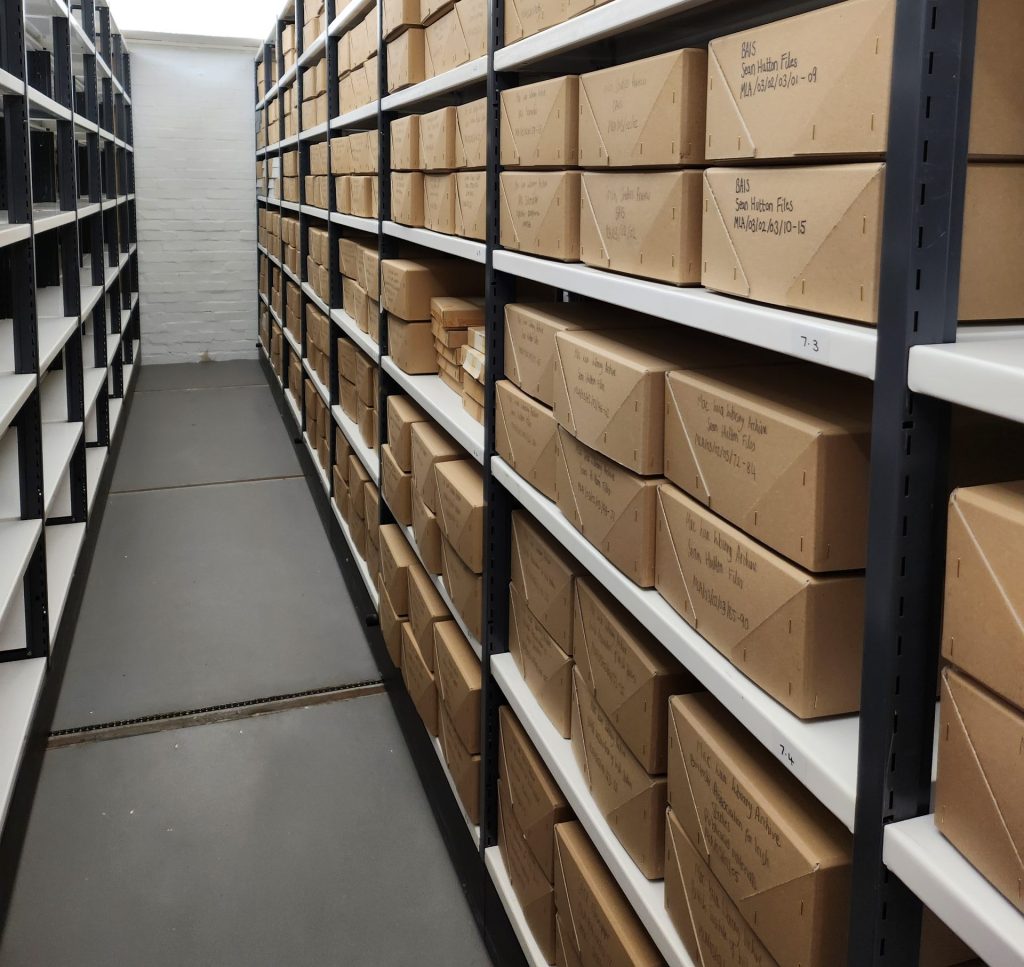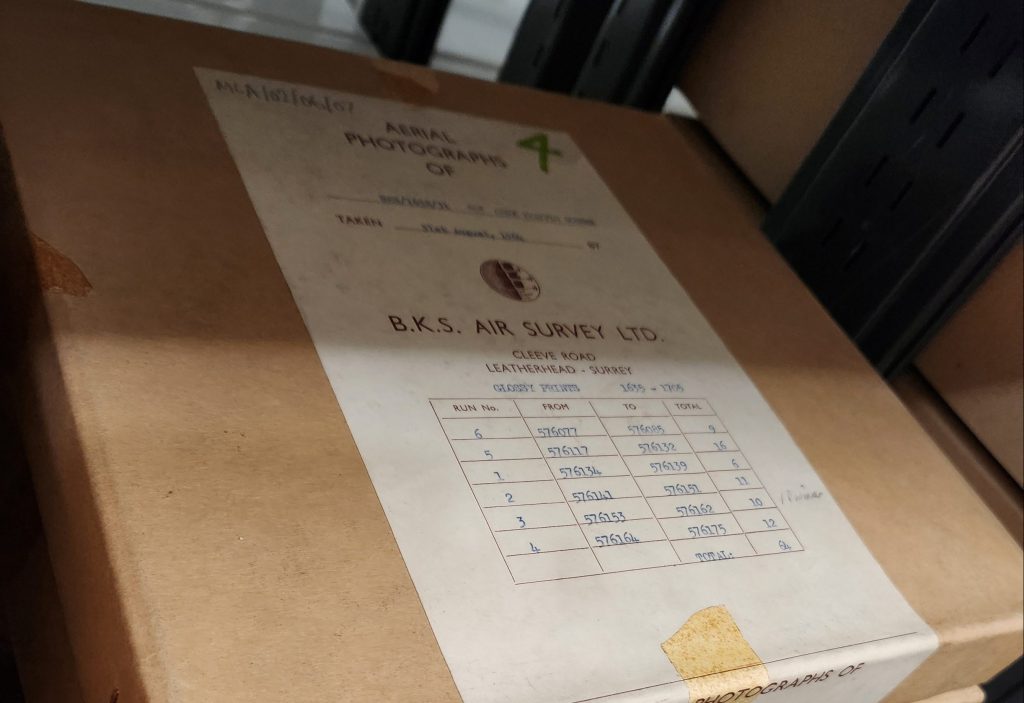When I began work on the Mac Lua Library archive in April of 2022 I was overwhelmed by the amount of material that was presented to me as well as the range of materials that were included with the archive. With everything from newspapers to VHS tapes of institute promotional materials, I knew this collection would be a great challenge to structure, both intellectually and physically. Despite this it was an exciting prospect to be able to get into the work on the collections that potentially hadn’t been looked at in detail for years.
Having surveyed a large amount of the records I decided that the most accessible sets of series for user access would be; Personal Records, Government Records, Institute Records and Newspaper Records. I believe that these sections allow the users to best understand the context of the records they are looking at in relation to the wider political discussions going on at the time of the record creation.

The sheer variety of this archive is part of what makes it an amazing resource for research due to the press and medias immediate reactions to the events of The Troubles, Peace Process talks and the many articles and books written years after the agreement was signed, the archive really allows for a deep dive into the changing opinions and rhetoric during and after the Good Friday Agreement.
Institute and Association records are also a large part of this collection, having been transferred from the Institute and a lot of the Institute’s academic’s have their personal records within the collection. The Institute of Irish Studies was awarded the title by the British Association of Irish Studies (BAIS) in collaboration with the Department of foreign affairs and was the first of it’s kind within England and this application and journey can be tracked through the archive as we hold the records for the Institute of Irish Studies and also the British Association for Irish Studies, as well as some personal records of BAIS’ Presidents. These records are important in the relationship between the Irish community and Britain as they give the community a presence and a voice, BAIS also funded, and continues to fund many projects which support the Irish community such as the Irish Youth Foundation.
Government records such as the Royal Ulster Constabulary and the Ulster Unionist Council are also represented within these collections and serve as an important reminder as to Ulster’s importance within the peace process talks. Ulster, being on the boarder of Northern and the Republic of Ireland was often at the centre of political unrest during this period and the police in ulster often had to go up against paramilitary groups, making Ulster a particularly dangerous and fraught area to live for civilians. The records in this collection often reflect this unrest with many papers discussing statistics of injuries or deaths specifically in Ulster.

At the heart of this archive is the community it both encompasses and serves; the Irish Community both in Liverpool, across the UK and in Ireland. While there are many academics whose collections contribute to this archive, part of the archive is surrounding the lives of Irish people such as the prisoners, the Irish people’s vote on the agreement and the collection of personal letters and business records from the Power/O’Neill family, who came over from Ireland in the 1920’s and owned a tobacco shop in the centre of Liverpool.
While this blog just gives a snapshot of the records within this archive, it has much more to offer. The archive is not simply an archive of an academic Institute, that alone would be interesting enough, but due to it’s ties with the Department of foreign Affairs and BAIS it has records and stories that are a wealth of research opportunities.
The collection is catalogued and, in keeping with Data Protection and GDPR, is available for consultation and research at Special Collection and Archives in the Sydney Jones Library. Any enquiries regarding the Mac Lua Library Archive can be directed to the Special Collections and Archives team at [email protected].
The Mac Lua Library Project is funded by Archives Revealed and developed in partnership with The Liverpool Irish Centre, The Irish Post, The Irish Consulate in Britain and the Liverpool Irish Festival. The aims of this project are to make more widely accessible the history of Ireland and Britain’s recent past for a more inclusive and diverse audience.